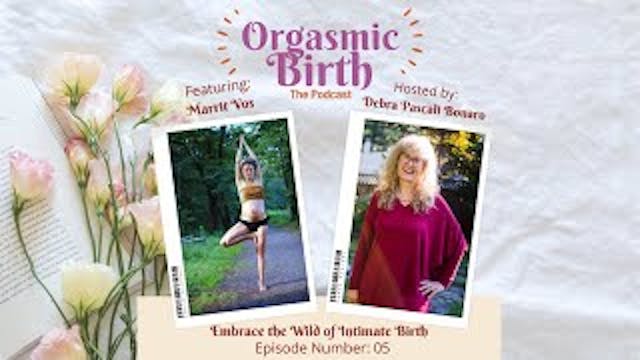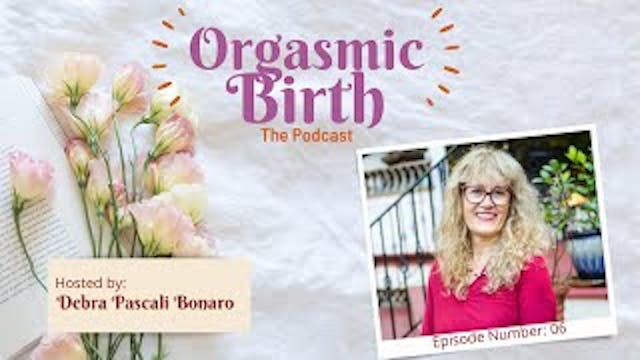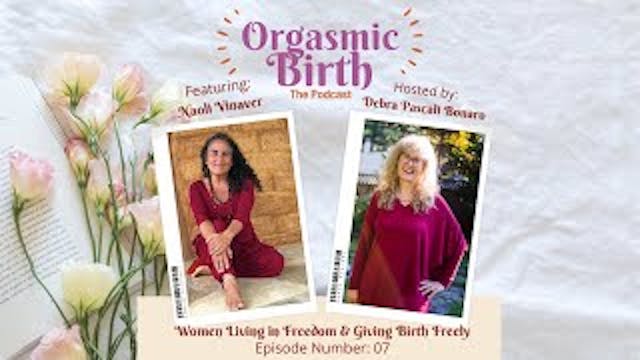Hormones play a huge part in our bodies and because of this, one of the things we can do is make sure in the early stages of labor, women are as comfortable as possible. How do we ensure that our hormones help to facilitate successful labor and birth?
Dr. Sarah Buckley talks about the changes that occur in the brain during labor and birth, how hormones play a role, and how oxytocin levels are highest near the end of labor.
Dr. Sarah Buckley is trained as a GP (family physician) with qualifications in GP obstetrics. She has been writing and lecturing to childbirth professionals and parents since 1997 and is the author of the internationally best-selling book Gentle Birth, Gentle Mothering. Sarah has a special interest in the hormones of physiological labor and birth and the impacts of interventions. In 2015 she completed an extensive report on this topic, Hormonal Physiology of Childbearing, published with Childbirth Connection (US). She is currently a Ph.D. candidate at the University of Queensland, researching oxytocin in labor and birth and the impacts of maternity-care interventions. She has co-authored several papers on oxytocin in labor, birth, and breastfeeding. Sarah is also the mother of four children, all born at home and now in their teenage years and beyond. She lives on the semi-rural outskirts of Brisbane.
In this episode:
Sarah talks about her unexpectedly fast home birth, which she describes in further detail in her book Gentle Birth, Gentle Mothering. The foundation of hormonal physiology is that first, it's designed for us to conduct successful birth. We're perfectly designed for a successful labor and birth. Sarah explains that oxytocin is responsible for inducing labor, increasing the sensitivity of the uterus to contract, and causing an "ecstatic" and "orgasmic" feeling. Labor is a process that involves many preparations, including the mother's body being maximally sensitive to oxytocin in her uterus, babies also having peak oxytocin levels, and the whole process of oxytocin being magical. Hugs, touches, and sexual activity can help to get labor started and help women get into an adequate state of readiness. Oxytocin has a pain-relieving and calming effect on the body.
Key Takeaways:
The presence of oxytocin during the labor process contributes to the magical feeling Doulas can help by ensuring good oxytocin flow Sexual activities can promote the release of your own oxytocin
Tweetable Quotes:
“The hormonal processes of labor and birth are actually designed to change our brains.” - Sarah Buckley “The foundation of hormonal physiology is that it's designed to be successful. Birth has evolved to be successful.” - Sarah Buckley
Up Next in Season 1
-
Embrace the Wild of Intimate Birth wi...
Are you ready to welcome change and break away from the stigma surrounding childbirth? In this episode, my guest, Marrit Vos tells her story of how she embraced an intimate and wild birth despite fears and doubts. She describes her experience of labor, which was both empowering and beautiful. Lis...
-
The Journey to Orgasmic Birth: From P...
Fear can be contagious. Unfortunately, when thinking about giving birth, the common thoughts are fear, pain, and fear of pain… It doesn’t have to be that way. Orgasmic birth is the ultimate expression of love and intimacy between a woman and her baby. It can help to create a sense of safety and s...
-
Live & Birth Freely and Connect With ...
What does it take to allow ourselves to go into the realms of pleasure during childbirth in order to have a positive experience? In this episode, Naoli Vinaver tackles midwifery techniques and emphasizes the importance of pleasure during childbirth. Listen closely as she describes the physical an...



